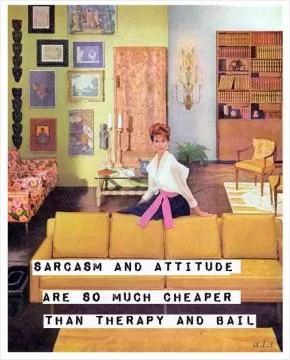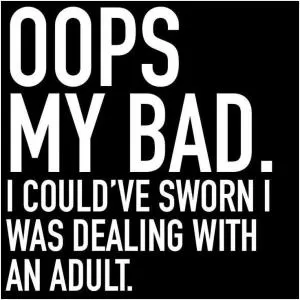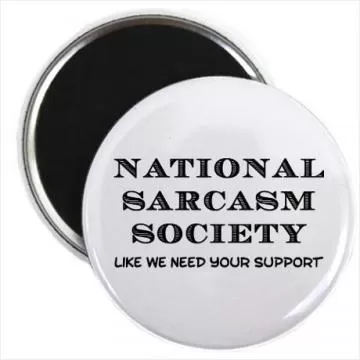If it weren't for sarcasm how would I express myself in a nonthreatening manner

If it weren't for sarcasm how would I express myself in a nonthreatening manner
Sarcasm is a powerful tool of communication that allows individuals to express themselves in a nonthreatening manner. It is a form of verbal irony that involves saying the opposite of what one truly means, often with a tone of mockery or disdain. Sarcasm can be used to convey humor, wit, or criticism without causing offense or confrontation.For many people, sarcasm is a natural and instinctive way of expressing themselves. It allows them to make light of serious situations, poke fun at themselves or others, and navigate social interactions with ease. Without sarcasm, they may struggle to convey their true feelings or opinions in a way that is both honest and nonthreatening.
In a world where direct communication can sometimes be seen as aggressive or confrontational, sarcasm provides a way to soften the blow of harsh truths or uncomfortable emotions. It allows individuals to express themselves honestly while maintaining a sense of distance or detachment. Sarcasm can be a shield that protects us from the vulnerability of raw emotion, allowing us to hide behind a mask of humor or irony.
Furthermore, sarcasm can be a powerful tool for social commentary and critique. By using sarcasm to highlight absurdities or contradictions in society, individuals can draw attention to important issues in a way that is both engaging and nonthreatening. Sarcasm can be a way of challenging the status quo, questioning authority, or subverting expectations without resorting to aggression or hostility.
However, it is important to recognize that sarcasm is not always a harmless form of communication. When used excessively or inappropriately, sarcasm can be hurtful, alienating, or confusing. It is essential to consider the context, tone, and audience when using sarcasm to ensure that it is received in the spirit in which it is intended.












 Friendship Quotes
Friendship Quotes Love Quotes
Love Quotes Life Quotes
Life Quotes Funny Quotes
Funny Quotes Motivational Quotes
Motivational Quotes Inspirational Quotes
Inspirational Quotes